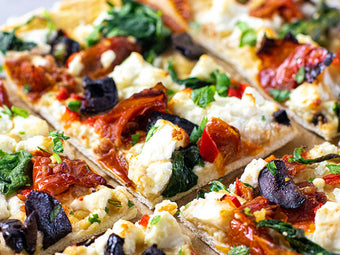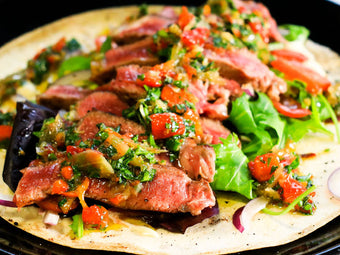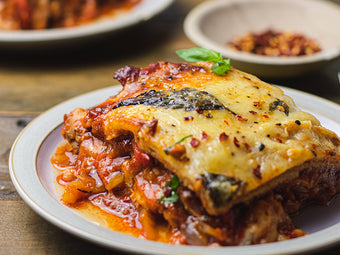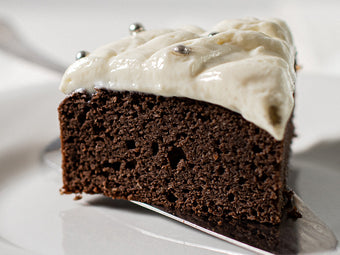How To Give Up Sugar For Good - By Dr Jen Unwin
Dr. Jen Unwin BSc, MSc, DPsy, FBPsS is a consultant clinical health psychologist based in the United Kingdom.
A self-confessed historic sugar addict, she works with the NHS helping patients manage chronic illness and achieve wellbeing. She also works with her GP husband Dr. David Unwin helping patients stick to lifestyle changes.

Giving up or cutting down on sugar in your diet
Giving up sugar is easy; I’ve done it lots of times! Of course, for some of us, it’s no laughing matter. The trick with addictive substances isn’t stopping, it’s staying stopped. Difficulty giving up long-term is part of identifying a substance or behaviour that is addictive such as alcohol, drugs, gambling or shopping. Lots of us can do ‘dry January’ or stick to a diet short term to lose a few pounds but evidence shows that in many people this weight tends to be regained.
Is sugar addictive?
There's a lot of evidence to show that sugar acts in the brain like other drugs and can hijack our willpower in ever creative ways to make us ‘relapse’ into bad habits around food.
People often do very well in the early days quitting sugar and refined carbs. They start enthusiastically, lose weight, come off medications and feel better physically and mentally. Then little by little they have ‘just one’ biscuit or ‘a few potatoes’ and are soon a few kilos heavier and feel they have ‘failed’. I always say that they haven’t failed, they have just learned a lesson. Or several lessons! Whilst some people can get away with the odd high carb meal then get back on track, anyone with an addictive relationship to sugar will soon end up having a high carb week, or a high carb month. One Christmas I went off track until the following April. It can take a few of these ‘excursions’ to learn that we feel better on low carb and finally stick to it for good.
Low-carb dieting
It takes quite a lot of determination and social skills to be low carb in our high carb culture. Family, friends and colleagues may try to derail you with tasty treats. Which office hasn’t got a cupcake baker? Meals out, holidays and travelling are all situations presenting challenges to the low carber, but all can be coped with! Lockdown has been a blessing and a curse for healthy lifestyles. In many ways, we have the opportunity to be healthier as we are not eating out, have time to cook and exercise. However, the upset, stress and isolation has meant people have turned to food and alcohol.
It’s important to remember our mental and physical health (particularly our immunity) are vastly improved with a low sugar lifestyle especially if we had in a little exercise.
Tips to help you keep on track long term with a low carb lifestyle:
1) Consult healthcare professional
If you are on medication make sure you have consulted your healthcare professional.
2) Start Fresh
Clear out your cupboards, fridge and freezer before you start. We are creatures of habit and will respond to familiar cues such as a particular biscuit wrapper with cravings. Out of sight out of mind is definitely true with food. If other people in the house still want sugar and carbs, get yourself your own cupboard and fridge shelf. Re-stock with good real low sugar foods.
3) Prepare a plan
Plan out the first few days and have regular meals with protein and fat.
4) Salt
Have a little extra salt if you get a headache
5) Busy is good
Keep busy, so there’s less time for cravings.
6) Make a lifestyle change
See it as a lifestyle, not a ‘diet’. Diets are time-limited but lifestyles are forever.
7) Stick to proteins and fats
You should feel much less hungry eating low carb because protein and fat are very satiating. Carbs and sugar don’t have an ‘off switch’. This makes it more effortless to stick to.
8) Experiment!
Try lots of different recipes. Discover loads of tasty low sugar, low carb recipes with Lo-Dough.
9) Look after your body and mind
Remember that sugary and high carb diets can lead to metabolic problems such as obesity, type 2 diabetes, cancer and Alzheimer’s.
10) Look to the future
Focus on your best hopes for following a low carb lifestyle; weight loss, coming off medications, feeling more energetic etc. Try and imagine life in a few months’ time and what difference it will make to you to succeed.
11) Remember the good times
Remember how you have felt when you have followed a healthy lifestyle in the past
12) You’re not alone
Join a group online or get support from someone in the family; maybe someone else can join you in your journey and share successes and recipes?
13) Do some self-analysis
What are your personal strengths that might help you succeed? Are you an organised person? Determined? A good cook?
14) Log your journey
Keep a record of what you notice improving. Weight and waist measurements, but also things like mood and sleep quality are good to track and lead to further motivation to continue.
15) Keep moving
Start incorporating some gentle exercise and other hobbies in your routine to replace food as a coping mechanism.
16) Listen to your body
Notice which foods make you feel good and which you can’t moderate. The less processed the better. Always check labels for hidden sugar and focus on real whole foods.
17) Snacks aren’t always your friend
Try not to snack in between meals. It actually makes you more hungry.
18) Beware of booze
Beware of alcohol even if it is low sugar. It can cause cravings and hunger for the next couple of days.
Fork in the Road: A Hopeful Guide To Food Freedom
You can find out more in my new book ‘Fork in the Road’ - available on Amazon here.















